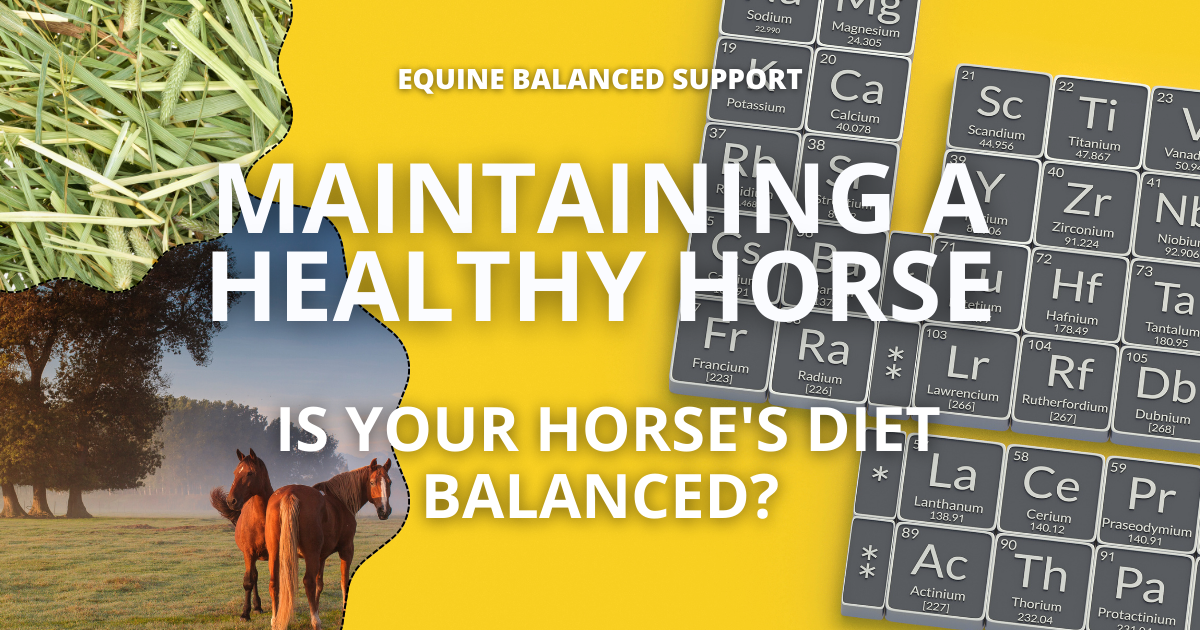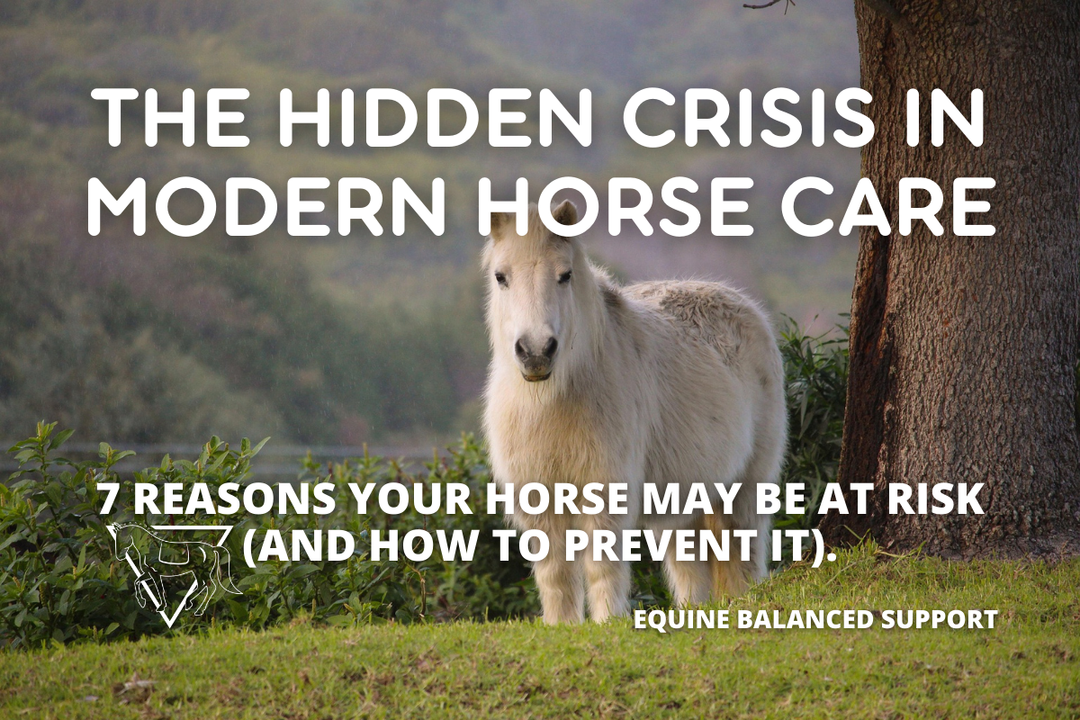Vitamins and Minerals Every Horse Needs | Essential Equine Nutrition

Vitamins and Minerals Every Horse Needs for Optimal Health
Vitamins and minerals are critical components of a horse's diet, essential for optimal health, performance, and recovery. This blog examines the vitamins and minerals horses need, their benefits, and practical tips for ensuring your horse receives a balanced diet. When formulating your horse's diet and supplementation program, please consult a veterinarian or equine nutritional specialist.
Essential Vitamins and Minerals for Horses
What are the essential vitamins and minerals for horses? For optimal health, horses need vitamins A, D, E, K, and B-complex and minerals like calcium, phosphorus, magnesium, and potassium. These nutrients support various bodily functions, from bone development and muscle function to immune support and energy metabolism. The National Research Council (NRC) provides comprehensive guidelines on the required amounts of these nutrients based on the horse's age, weight, and activity level (NRC, 2007).
Actionable Tip: Regularly consult an equine nutritionist to tailor your horse's diet to meet specific vitamin and mineral needs based on their life stage and activity level.
Required Nutrients for Horses:
-
Calcium (Ca)
Function: Bone development, muscle function.
Recommended Daily Value:
Maintenance: 0.20-0.40% of the diet
Growing horses and lactating mares: 0.80-1.00% of the diet (NRC, 2007). -
Phosphorus (P)
Function: Bone health, energy metabolism.
Recommended Daily Value:
Maintenance: 0.15-0.30% of diet
Growing horses and lactating mares: 0.60-0.70% of the diet (NRC, 2007). -
Magnesium (Mg)
Function: Muscle and nerve function, enzyme activation.
Recommended Daily Value:
Maintenance: 0.10-0.15% of diet
Growing horses: 0.10-0.15% of the diet (NRC, 2007). -
Potassium (K)
Function: Electrolyte balance, muscle function.
Recommended Daily Value:
Maintenance: 0.30-0.40% of the diet
Performance horses: 0.40-0.60% of the diet (NRC, 2007). -
Sodium (Na)
Function: Electrolyte balance, nerve function.
Recommended Daily Value:
Maintenance: 0.10-0.20% of diet
Performance horses: 0.20-0.30% of the diet (NRC, 2007). -
Chloride (Cl)
Function: Electrolyte balance, digestion.
Recommended Daily Value:
Maintenance: 0.15-0.30% of diet
Performance horses: 0.25-0.35% of the diet (NRC, 2007). -
Vitamin A
Function: Vision, immune function.
Recommended Daily Value:
Maintenance: 15,000 IU/day
Growing horses and lactating mares: 30,000-45,000 IU/day (NRC, 2007). -
Vitamin D
Function: Calcium and phosphorus absorption.
Recommended Daily Value:
Maintenance: 3,000 IU/day
Growing horses and lactating mares: 6,000-9,000 IU/day (NRC, 2007). -
Vitamin E
Function: Antioxidant, muscle, and nerve function.
Recommended Daily Value:
Maintenance: 500 IU/day
Performance horses: 1,000-2,000 IU/day (NRC, 2007). -
Vitamin K
Function: Blood clotting, bone metabolism.
Recommended Daily Value:
Maintenance: 1 mg/kg of diet
Growing horses and lactating mares: 2-3 mg/kg of the diet (NRC, 2007).
Common Nutrients for Horse Supplementation:
-
Copper (Cu)
Function: Enzyme function, iron metabolism.
Recommended Daily Value:
Maintenance: 100 mg/day
Growing horses: 200-250 mg/day (NRC, 2007). -
Zinc (Zn)
Function: Immune function, skin and coat health.
Recommended Daily Value:
Maintenance: 400 mg/day
Growing horses: 500-600 mg/day (NRC, 2007). -
Iron (Fe)
Function: Oxygen transport, enzyme function.
Recommended Daily Value:
Maintenance: 400-500 mg/day
Growing horses: 500-700 mg/day (NRC, 2007). -
Selenium (Se)
Function: Antioxidant, muscle function.
Recommended Daily Value:
Maintenance: 1 mg/day
Performance horses: 2-3 mg/day (NRC, 2007). -
Vitamin B1 (Thiamine)
Function: Energy metabolism, nervous system health.
Recommended Daily Value:
Maintenance: 20-30 mg/day
Performance horses: 50-60 mg/day (NRC, 2007). -
Vitamin B2 (Riboflavin)
Function: Energy production, cellular function.
Recommended Daily Value:
Maintenance: 20-30 mg/day
Growing horses: 40-50 mg/day (NRC, 2007). -
Biotin
Function: Hoof health, skin condition.
Recommended Daily Value:
Maintenance: 2-4 mg/day
Performance horses: 15-20 mg/day (NRC, 2007).
Trending Nutrients in Horse Nutrition:
-
Omega-3 Fatty Acids
Function: Anti-inflammatory, joint, and skin health.
Recommended Daily Value:
No specific NRC guidelines; typically supplemented at 20-40 g/day for benefits. -
Probiotics
Function: Gut health, digestion.
Recommended Daily Value:
There are no specific NRC guidelines, commonly supplemented at 10-20 billion CFU/day. -
Prebiotics
Function: Support gut microbiome digestion.
Recommended Daily Value:
There are no specific NRC guidelines; it is commonly supplemented at 20-40 g/day of ingredients like inulin or fructooligosaccharides. -
Electrolytes
Function: Hydration, muscle function.
Recommended Daily Value:
Specific requirements depend on workload and climate, commonly supplemented with 30-60 g/day during intense exercise. -
Vitamin C
Function: Antioxidant, immune support.
Recommended Daily Value:
There are no specific NRC guidelines, often supplemented at 5-10 g/day for older or stressed horses.
Functions of Vitamins A, D, and E in Horses
What are the functions of vitamins A, D, and E in a horse's diet? Vitamin A supports vision and immune health, D regulates calcium and phosphorus absorption, and E acts as an antioxidant, protecting cells from damage. The NRC emphasizes the importance of these vitamins for maintaining overall health and preventing diseases (NRC, 2007).
Actionable Tip: Ensure your horse's diet includes vitamins A, D, and E. Consider vitamin supplements if natural intake is insufficient.
The Role of Magnesium in Horses
Why is magnesium essential for horses? Magnesium is crucial for muscle relaxation and nerve function. It helps prevent muscle tremors and cramps. A study published in the "Journal of Equine Veterinary Science" found that magnesium supplementation can improve muscle function and reduce stress in horses (Harris, 2010).
Actionable Tip: Including Magnesium
- Provide magnesium-rich feeds or supplements.
- Monitor for signs of magnesium deficiency, such as muscle tremors.
Benefits of Chelated Minerals for Horses
What are the benefits of chelated minerals in equine supplements? Chelated minerals, which are bound to organic molecules, are more easily absorbed by the horse's body. This increased bioavailability can enhance the effectiveness of supplementation. Research in "Animal Nutrition" suggests that chelated minerals may improve health outcomes more effectively than inorganic forms (Spears, 2003).
Actionable Tip: Choosing Supplements
- Opt for chelated mineral supplements for better absorption.
Sources of Vitamins and Minerals in Horse Diets
What are the best sources of vitamins and minerals for horses? High-quality forage, fortified grains, and specialized supplements are excellent sources. Pumpkin, chia seed, and brewer's yeast are also beneficial. The NRC recommends a diet that includes natural and fortified sources to ensure balanced nutrient intake (NRC, 2007).
Actionable Tip: Diversifying Nutrient Sources
- Incorporate a variety of forages, grains, and supplements.
- Include natural sources like chia seeds and brewer's yeast in your horse's diet.
Ensuring your horse receives a balanced intake of vitamins and minerals is essential for its health, performance, and longevity. You can support your horse's overall well-being by understanding the specific nutrient requirements and incorporating high-quality forage, grains, and supplements. Regular consultations with an equine nutritionist and appropriate testing methods like forage analysis and blood tests will help tailor a diet that meets your horse's unique needs. Remember, every horse is different, and their nutritional plan should reflect their age, activity level, and health status. Prioritizing a balanced diet will enhance your horse's physical condition and contribute to a happier, healthier life.
Shop here for a balanced vitamin-mineral supplement to help your horse thrive!: Mega-Cell
Further reading:
Ohio State University Extension
References:
- Harris, P. (2010). Magnesium in Equine Diets. Journal of Equine Veterinary Science.
- National Research Council (NRC). (2007). Nutrient Requirements of Horses. Washington, DC: The National Academies Press.
- Spears, J. W. (2003). Trace Mineral Bioavailability in Ruminants. Animal Nutrition.





Leave a comment